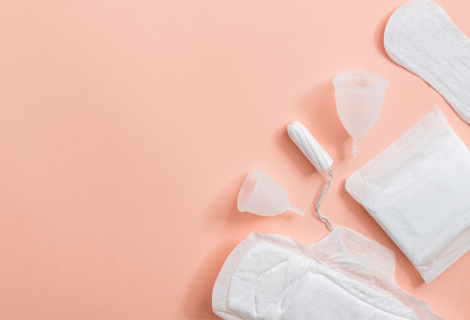Vitamin D and Fertility
Vitamin D is one of the blood tests that I always recommend for my fertility patients.
What is vitamin D?
Vitamin D is officially known as cholecalciferol but is better known as the sunshine vitamin. When your’e exposed to sun, vitamin D is produced by your body in your skin.
What are good sources of vitamin D?
- Exposure to sunshine
- Fatty fish such as herring, mackerel, salmon, sardines and tuna
- Red meat and liver
- Egg yolk and cheese
- Mushrooms
- Fortified foods such as milk and cereals
Who’s at risk for lower vitamin D levels?
- People with darker skin
- People who use a lot of sunscreen
- Your physical location because people who live in heavily polluted or norther hemispheres are less exposure to sun
- Shift workers
- Exclusively breastfed babies
What are the health benefits of vitamin D?
- Regulates your calcium and phosphate levels, which are needed to keep your bones, teeth and muscles healthy
- Supports your immune system
- Influences the expression of genes involved in certain cancers
- Supports a healthy pregnancy by decreasing the mothers’s risk for preeclampsia, gestational diabetes and preterm birth
- Supports a healthy baby by decreasing the risk for preterm birth and food allergies
- Reduces your risk for diabetes by regulating your insulin levels
- Reduces your risk for heart attacks by helping to lower your blood pressure
- Reduces your risk for rheumatoid arthritis
- Reduces your risk for multiple sclerosis
How does vitamin D affect fertility?
The research shows that women who have higher vitamin D levels are more likely to conceive when compared to women who had lower vitamin D levels.
In a study that looked at IVF patients, women who had normal vitamin D levels were FOUR times more likely to become pregnant via IVF than women who had low levels of vitamin D. There was a similar correlation in another study that looked at IVF with frozen donor embryos.
How does vitamin D affect pregnancy?
Researchers have also found that vitamin D deficiency has also been associated with increased risk of:
- Gestational diabetes
- Preeclampsia
- Bacterial vaginosis
- Lower birth rates
- Preterm birth
- Post-partum bleeding
- Post-partum complications
Is vitamin D safe to take during pregnancy?
Yes! Research shows that it’s safe for pregnant women to take vitamin D, and that it helps to prevent vitamin D deficiency in their newborns as well.
However, the dosing should be based on your blood test results because there was a study that showed that if you take too much vitamin D, it actually hinders your chance of conceiving. So it appears that it might be a fine line between vitamin D helping and hurting your chances of conceiving.
** Please note that this is NOT medical advice and that you should talk to your healthcare provider before taking this supplement
If you’d like my support during your fertility journey, pregnancy or fourth trimester/post-partum, CONTACT ME HERE to set up a complimentary 15 min discovery call/meeting to get started.
What’s a discovery call/meeting? It’s where we get to know each other better to ensure that I’m the right practitioner for you and that you have the opportunity to ask your questions about Naturopathic Medicine before we move forward with an initial Naturopathic consultation.
Here are a few more blog articles related to fertility that you might be interested in:
- Fertility
- Fertility: How Naturopathic Medicine Can Help
- Acupuncture for Fertility
- The Effect of Obesity on Fertility
- Polycystic Ovarian Syndrome (PCOS)
- Trying to get pregnant? Test your ferritin levels!
- CoQ10 & Fertility: What’s all the fuss about?
- Estrogen
- Vitamin D and Fertility
- Fertility Plan During COVID-19
And if you’re interested in reading about my personal struggles with my own fertility journey:
- My Crazy IUI Story
- My IVF Story: Part 1
- My Surgery Surprise
- My IVF Story: Part 2
- TW: My Big News!
- My Fertility Journey on Facebook for #CIAW2020
- My Fertility Journey on Instagram for #CIAW2020
References
Bodnar et al. Maternal Vitamin D deficiency is associated with bacterial vaginosis in the first trimester of pregnancy. J Nutr. 2009 Jun; 139(6): 1157-1161.
Ozkan et al. Replete vitamin D stores predict reproductive success following in vitro fertilization. Fertil Steril. 2010 Sep; 94(4): 1314-1319.
Hollis et al. Vitamin D supplementation during pregnancy: Double-blind, randomized clinical trial of safety and effectiveness. J Bone Miner Res. 2011 Oct; 26(10): 2341-2357.
Rudick et al. Characterizing the influence of vitamin D levels on IVF outcomes. Hum Reprod. 2012 Nov; 27(11): 3321-2217.
Brzechocinska et al. The role of vitamin D in impaired fertility treatment. Neuro Endocrinol Lett. 2013; 34(8): 756-762.
Rudick et al. Influence of vitmain D levels on in vitro fertilization outcomes in donor-recipient cycles. Fertil Steril. 2014 Feb; 101(2): 447-452.
Bodnar et al. Early-pregnancy vitamin D deficiency and risk of preterm birth subtypes. Obstet Gynecol. 2015 Feb; 125(2): 439-447.
Rodda et al. Maternal vitamin D supplementation during pregnancy prevents vitamin D deficiency in newborn: An open-label randomized controlled trial. Clin Endocrinol (Oxf). 2015 Sep; 83(3): 363-368.
Zhang et al. Vitamin D deficiency increases the risk of gestational diabetes mellitus: A meta-analysis of observational studies. Nutrients. 2015 Oct 1; 7(10): 8366-8375.
Rasmussen et al. Vitamin D supplementation reduces pregnancy chances: A randomized placebo controlled trial. Bone Abstracts. 2016; 5 OC3.3
Baca et al. Low Maternal 25-hydroxyvitamin D concentration increases the risk of severe and mild preeclampsia. Ann Epidemiol. 2016 Dec; 26(12): 853-857
Chu et al. Vitamin D and assisted reproductive treatment outcome: A systematic review and meta-analysis. Hum Reprod. 2018 Jan 1; 33(1): 65-80.
#drmoirakwokND #1in6 #fertility #infertilityjourney #infertilitysucks #infertilitysupport #infertilitytribe #infertilitywarrior #infertilitysuccess #ttc #ttcjourney #ttcsupport #ttctribe #IUI #IVF #IVFwarrior #IVFjourney #IVFsisters #unexplainedinfertility #youarenotalone #vitamin D #sunshinevitamin #vitaminDtesting #topbloodtests #supplementsthatwork #gestationaldiabetes #diabetes #preeclampsia #highbloodpressure #hypertension #pregnancysupport #postpartumsupport #fourthtrimestersupport









